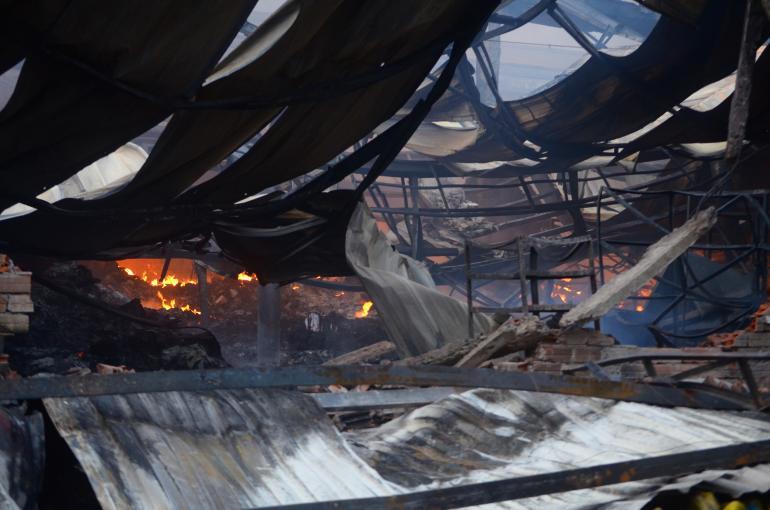
CHINA VS VIETNAM: OIL DISPUTE

China sought to justify its efforts to protect an oil rig at the center of a tense territorial dispute with Vietnam, even as a senior Chinese diplomat backed away from earlier official statements that the rig fell within China's territorial waters.
China's foreign ministry also accused U.S. Vice President Joe Biden of taking a "biased" position on the standoff that began on May 2.
The uncompromising remarks suggested there had been little or no progress toward negotiating an end to the standoff, which has raised fears of a military conflict over the disputed waters of the South China Sea, one of the world's busiest waterways.
China's commerce minister was set to meet with Vietnam's trade minister Friday in the Chinese city of Qingdao, but the results of that meeting weren't clear.
Vietnamese officials Friday raised the death toll from anti-China riots in Vietnam this week to three, including one Chinese national and two whose identities weren't known. China on Friday said two Chinese had been killed the violence.
The standoff began when a state-run Chinese oil company deployed a deep sea rig in an area claimed by both China and Vietnam in the South China Sea.
In just over a week, Vietnam had more than doubled to 63 the number of ships it had deployed around the rig, Ouyang Yujing, director general of the Department of Ocean and Boundary Affairs of China's foreign ministry, said Friday.
The Vietnamese ships had collided with Chinese ones in the area—about 150 nautical miles from Vietnam's coast—more than 510 times since May 2, Mr. Ouyang said.
He declined to say how many Chinese ships were in the area, but said they were taking measures to protect themselves and the rig. He also accused Vietnam of presenting a distorted picture of the situation around the rig.
"While making brutal and unjustified armed disruptions to the normal operations of the Chinese company, Vietnam is playing the writer, director and actor all at one time in a self-victimization show and portraying itself as the innocent victim," he said.
A Vietnamese coast guard official declined to comment on China's remarks and said it doesn't have military vessels there. The official said China has more than 100 vessels on the scene.
Also on Friday, Le Luong Minh, the secretary-general of the Association of Southeast Asian Nations, said "we have to get China out of the territorial waters" of Vietnam to restore confidence in talks to resolve the territorial disputes. The statement by Mr. Minh, a Vietnamese national, was the strongest yet by a spokesman for the 10-member group.
Meanwhile, Chinese foreign ministry spokeswoman Hua Chunying accused Vice President Biden of having a biased view on the issue, and said that U.S. statements had emboldened countries in the region to challenge China over its territorial claims in the South China Sea.
Mr. Biden said the U.S. was seriously concerned about China's actions around the rig during a meeting Thursday with General Fang Fenghui, the Chinese military's chief of general staff, who has been visiting the U.S. this week.
Gen. Fang defended China's record at the news conference, arguing that other countries have drilled many oil wells in the South China Sea, and Beijing only one.
"We do not make trouble. We do not create trouble. But we're not afraid of trouble," Gen. Fang said.
He also said China's rig was in its territorial waters because it fell within 12 nautical miles of one of the Xisha Islands, also known as the Paracel islands, which are claimed by Vietnam but controlled by China.
The United Nations Convention on the Law of the Sea, of which China is a signatory, defines territorial waters as stretching out to a maximum of 12 nautical miles from a country's declared coastal boundaries.
After the news conference, U.S. officials disputed Gen. Fang's claim and said the rig actually was 17 nautical miles off the southernmost point of the Paracels.
Mr. Ouyang, the foreign ministry official, said Friday the rig was 17 nautical miles from the nearest of the Paracels and was therefore part of China's contiguous zone, rather than its territorial waters, according to international law.
Under the U.N. agreement, a state has sovereign rights over its territorial waters but is allowed to enforce only certain customs, immigration, sanitary and other regulations in its contiguous zone, which can stretch to a maximum of 24 nautical miles from the coast. Those rules don't cover drilling for oil.
Countries that sign the agreement can also declare an exclusive economic zone, or EEZ, going out up to 200 nautical miles, within which it has sole rights to conduct or license commercial activity such as fishing, mining or drilling for oil. But if two countries' zones overlap, they are supposed to negotiate an agreed midpoint. China and Vietnam have yet to do that.
The issue is further complicated in the South China Sea because China claims that historically, it has controlled waters lying within a nine-dash line that covers almost all of the area. The rig lies within that area.
Mr. Ouyang said that the nine-dash line was a historical issue that had to be discussed between relevant parties in the South China Sea dispute.
But he said that no matter which principle was applied, the waters around the rig would not fall under Vietnam's EEZ.
wsj.com





